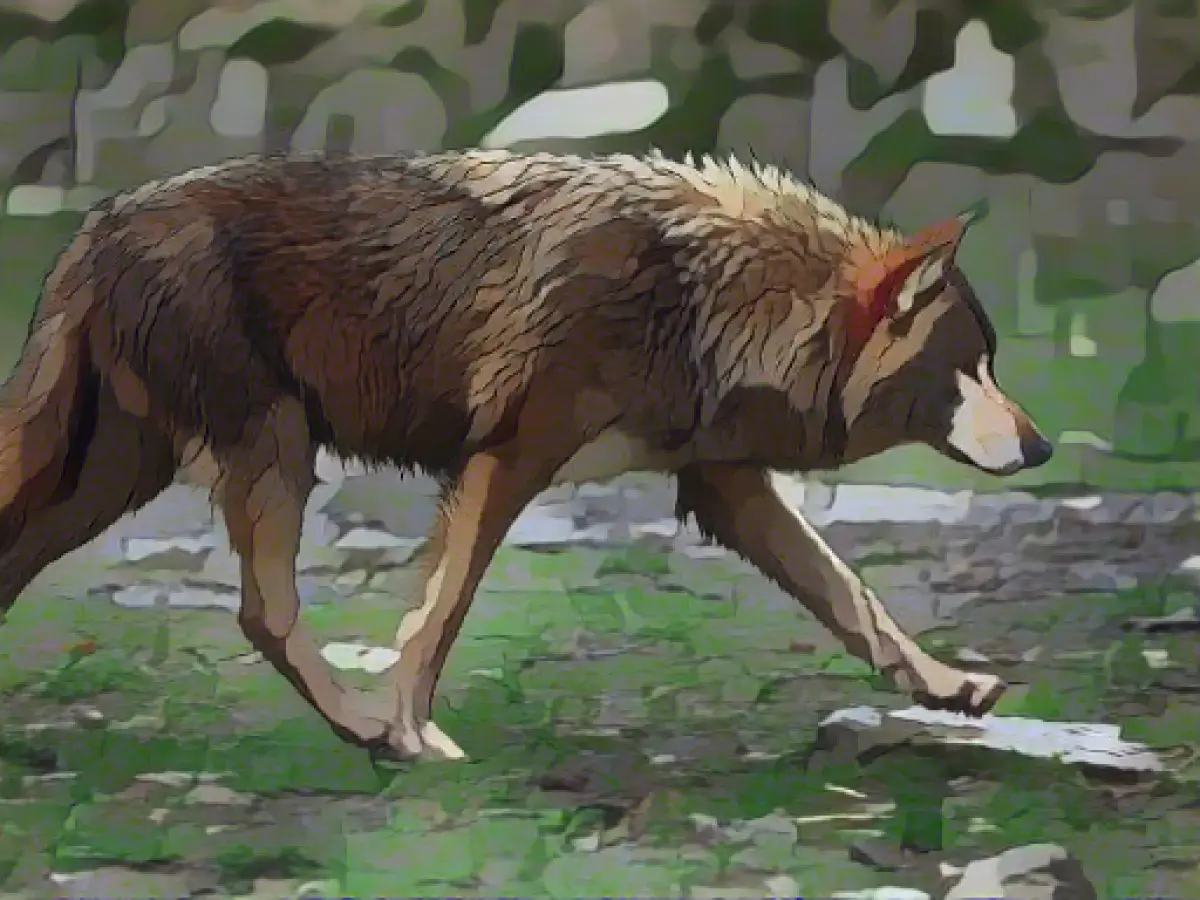Is a different wolf policy coming? Environment ministers discuss
Ahead of the consultations between the federal and state environment ministers, there has been no end in sight to the controversy in Brandenburg over how to deal with wolves. Farmers and hunters are eagerly awaiting the conference of environment ministers in Münster, which begins on Thursday. They will be discussing a proposal by Federal Environment Minister Steffi Lemke (Greens) to make it easier to shoot individual wolves that have killed sheep and other livestock.
The proposal does not go far enough for the hunting association in Brandenburg: it insists that wolf numbers should be reduced in a targeted manner - and is calling for an upper limit on the wolf population. Nature conservation associations do not see this as a solution to prevent grazing animals from being killed.
Brandenburg's Environment Minister Axel Vogel (Greens) is in favor of Lemke's proposal, who wants to report on the results of the federal-state meeting on Friday (1 p.m.). Most wolf packs live in Brandenburg (52), followed by Lower Saxony (39) and Saxony (38).
Lemke wants to enable faster shooting of individual wolves in Germany. The federal states are then to define certain regions with an increased number of wolf kills. If a wolf has overcome reasonable protective measures such as a fence and has killed a grazing animal, it should be allowed to be shot for 21 days by special permit - within a radius of 1000 meters around the pasture. Unlike in the past, it will not be necessary to wait for a DNA analysis to identify the wolf. Lemke rejects the idea of shooting wolves without cause.
According to Vogel, the federal government and Brandenburg do not consider shooting according to certain quotas to be legally compliant with current federal nature conservation law. The further course of action of the federal states now depended on the outcome of the conference of environment ministers. Brandenburg then wants to examine how the wolf ordinance can be optimized in a legally secure manner. According to Vogel, herd protection must also be further improved.
The state hunting association stated that Lemke's proposals were a step in the right direction. However, it is calling for wolves to be included in hunting legislation. "Last year alone, three million euros were made available from the state budget for preventative measures in Brandenburg," said the association's managing director Kai Hamann. However, wolf attacks and livestock kills continue to increase. "Especially with the drastic decline in wildlife populations in Brandenburg, wolves will attack livestock even more frequently in the future."
According to the Federal Documentation and Advisory Center on the Wolf (DBBW), the number of farm animals injured or killed by wolf attacks last year was more than 4,000. In winter, when more grazing animals come into stables, the risk of attacks is likely to be lower, according to the Nature Conservation Association.
Germany is obliged under national and European law to strictly protect wild wolves. EU Commission President Ursula von der Leyen had announced that the protection status of the wolf would be reviewed.
The discussion among environment ministers in Münster includes the potential impacts of Lemke's proposal on the balance between animal welfare, agriculture, and environmental policy. Farmers and hunters believe that the proposed changes may not adequately address the current issue of wolf attacks on livestock. The involvement of agricultural policies and environmental policies in animal conservation becomes essential as the wolf population continues to grow, and conflicts with farmers arise.
Source: www.dpa.com








